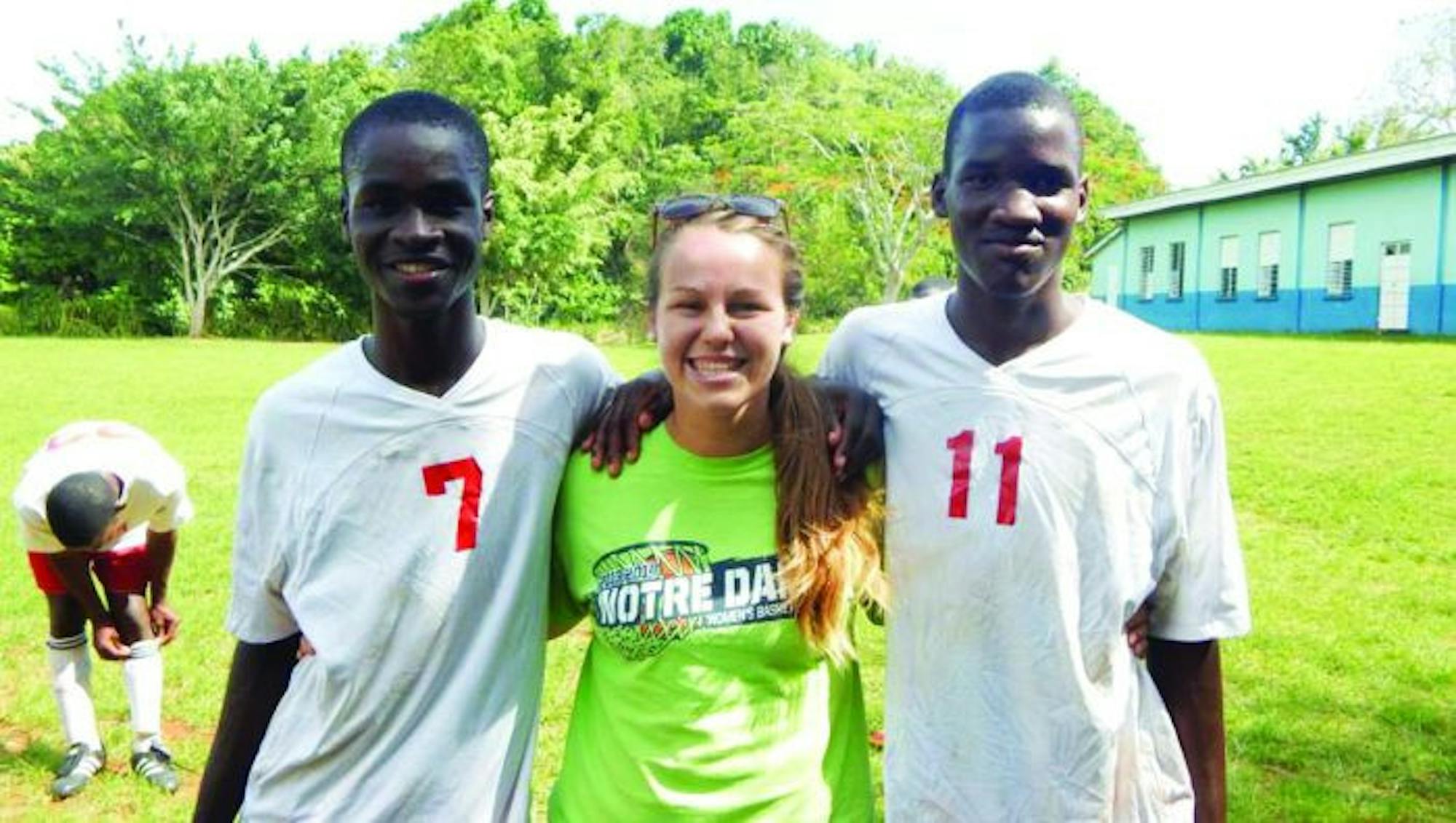Attending an information session can change a life.
Entering her senior year at Notre Dame, Victoria Ryan (‘15) knew she wanted to participate in a year of post-graduate service, but was unsure of her long-term plans. She attended the career fair and the service fair, but it was not until she chanced upon an information session about the Passionist Volunteers International (PVI) that she decided what to do immediately following graduation.
“I just so happened to hear about an information session for a program that was year-long, living in community in Jamaica, and I only even went to the information session because it was at the perfect time in my schedule — it was right when I knew I’d be leaving dinner and I’d be leaving for the library,” she said.
At the information session, she met Fr. Lucian Clark, the director of PVI.
“I really loved talking to him and hearing everything he had to say about Jamaica and his passion for the program and the work that they were doing in Jamaica,” Ryan said. “I didn’t really stop thinking about it.”
A month later, she learned she had been accepted into the program. While in Jamaica, Ryan worked at various sites, including a health clinic, a preschool and a home for orphaned boys.
For Ryan, serving as a nurse’s aide at the health clinic helped her discern her career path.
“Career-wise, the clinic was phenomenal,” she said. “I’m planning on attending an accelerated bachelor’s of nursing program, starting in May, so that really helped me decide what I wanted to do and really sparked my interest in global health, which I think is what I want to do long term.”
According to Passionist Volunteer International’s website, the program was founded in 2003 and is currently based in Mandeville, Jamaica. Ross Boyle, assistant vocations director at PVI, visited campus Monday and Tuesday to discuss the program with Notre Dame students. Boyle said the program usually consists of a group of six to eight volunteers each year.
Boyle explained PVI is run by the Passionists, a Catholic religious order with a special focus on serving the marginalized, whom they term “the crucified of today.”
“Every year, we send a group of volunteers to go work for just a few weeks over 12 months,” he said. “The whole goal of the program is we work with the crucified of today. … Truthfully, the crucified of today can really be anyone. The idea of the cross, Christ crucified, is one that can kind of be anyone who bears a cross.”
Before arriving in Jamaica, volunteers do not know which mission sites they will serve. However, Boyle said, this practice allows PVI to match individual volunteers with the tasks best suited to their interests and skills.
“Our program really gets to know who you are and we spend three weeks with you in the country to figure out what your strengths are, to figure out what you like doing, what you hate doing [and] what areas of your life you want to grow in,” he said.
Katherine Merritt (‘14), who studied science business at Notre Dame, was assigned to work in a health clinic and teach classes at an elementary school. In particular, she said she enjoyed getting to know the Jamaican people at each of her sites.
“I worked in a small community clinic, so eventually we kind of started to get to know everyone,” she said. “The nurses I worked with started to become really good friends with all the patients that we were with as well. It’s just kind of different in that it’s a lot more relational and everyone is very community-based.”
Ross McCauley (‘13) began support groups for HIV/AIDS patients and mothers of children with disabilities while serving with PVI. Now in medical school, McCauley said his experiences with the organization have helped him to better empathize with patients and led him to contemplate how to best serve the poor.
“I think coming from a point of privilege in life, it’s hard to know how to approach some of the problems I saw, just in terms of abject poverty and things like starvation and lack of basic needs — how to approach that with sensitivity and the right motives,” he said. “It is very difficult and it is something I struggle with, even in the South Bend community I now work in.
“It’s something I think we should all be aware of and think about, especially as people lucky enough to attend Notre Dame — how best to kind of inject our skills and interests in this world without being offensive or making the problems worse.”













